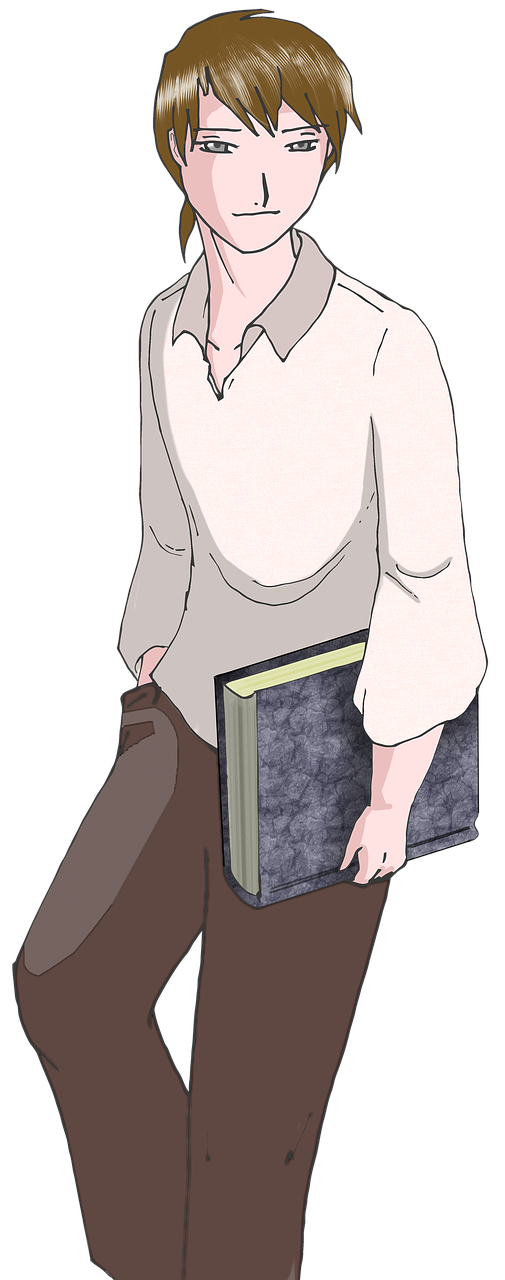Profesionales en espera||Professionals in waiting

En oportunidades hemos escuchado que la universidad te prepara para ser un empleado, que a lo largo de la carrera no hay en el pénsum ni una solo asignatura que aborde el tema de ejercer la profesión de una manera independiente, de cómo vender tus servicios o en última instancia algo que acerque al estudiante a la posibilidad de emprender en su área.
Es verdad, este es un conocimiento que pude ser adquirido por otra vía o pudiésemos argumentar que eso no corresponde al área de conocimiento que se está estudiando, sin embargo sabemos que las cifras de desempleo y de trabajo informal cada día son mayores, que las relaciones laborales se encuentran en constante cambios y que emprender desde una profesión puede ser la vía para minimizar el impacto que el desempleo o subempleo produce a nivel individual y social.
También es cierto que no todos queremos ser emprendedores o que no todas las profesiones se pueden adaptar a un emprendimiento individual porque, por ejemplo, pueden requerir de equipos de alta tecnología y de alto valor económico, pero lo que se plantea es que los sistemas educativos formales ayuden a fomentar la mentalidad emprendedora, que el joven estudiante mire como una posibilidad real emprender desde el conocimiento que ha adquirido y que si ha sabido escoger bien su profesión, ejercerla, es parte de su realización personal.
El tema lo traigo hoy porque siento gran preocupación al respecto. Estoy trabajando con tres jóvenes desempleados y puedo ver en ellos características actitudinales comunes. Les comento cada caso y luego a modo de conclusión presentaré las características comunes:

Luis Felipe es arquitecto, terminó la carrera justo antes de declararse la pandemia, recibiendo su título casi dos años después de haber culminado. Durante la pandemia se sintió perdido, estafado por la vida y su motivación cayó en picada. Su fortaleza principal es el dominio de programas de diseño 3D y cuenta con una computadora de última generación que le compró su papá para que trabajara.
No ha habido manera que arranque, sigue en espera que alguien lo llame para un trabajo.
Lilibeth es odontóloga y al igual que Luis, la pandemia le retrasó dos años de estudios, pues su carrera exige trabajar directamente con los pacientes, así que la posibilidad on-line no era alternativa, por lo que finalmente se gradúa un año después del confinamiento.
La joven, junto a sus padres, logró reunir el dinero para invertir en una unidad portátil de odontología, la cual reposa en su habitación, pues sigue en espera de conseguir un trabajo en un centro asistencial.
MaryT estaba en el 8vo semestre de fisiatría cuando llegó la pandemia. No pudo continuar la carrera porque no contaba con los recursos para unirse a las clases on-line, perdió su trabajo y cuando la universidad reabrió la modalidad presencial era tan elevado el costo que no logró reincorporarse.
Con el conocimiento adquirido y un curso como terapista, sigue esperando que la llamen de algún centro de terapias para prestar sus servicios.
Aparte de tener en común la vivencia de la pandemia que paralizó sus sueños, hay otros aspectos puntuales que no les permiten avanzar, entre ellos:

-No plantearse alternativas: En nuestras sesiones de coaching se enfocan en querer conseguir un trabajo, trabajan para ello: viven mejorando técnicas de elaboración de un curriculum vitae, buscan incansablemente en internet donde meterlos y se quedan esperando que los llamen.
Sus profesiones pueden ser ejercidas de manera personal, pero les es prácticamente imposible visualizarse como emprendedores, no lo ven como una alternativa factible, ya que consideran no tener “madera” para ello y muestran muy poco interés para formarse en esta área.
-Paralización del aprendizaje: No solo no tienen interés en formarse como emprendedores, sino que tampoco les interesa fortalecer su conocimiento profesional. Por ejemplo, Luis Felipe ve con terror la Inteligencia Artificial está convencido que eso les reduce el campo de trabajo, parte de ello puede ser cierto, sin embargo, no todo el que requiere un diseño arquitectónico puede tenerlo pulsando una tecla, eso requiere de un conocimiento, de habilidades y destrezas, fortalecerse en ello le agregaría valor a su servicio.
En el caso de las dos chicas se encuentran tan desencantada de lo que el mercado laboral les ofrece que no hallan nada atractivo en seguir estudiando.
Motivación extraviada. Indudablemente, han perdido su norte motivacional y lo que tienen son sus nefastas consecuencias: estrés, ansiedad, impotencia, rabia, miedo y me atrevería a afirmar que cierto grado depresivo, pues no logran ver una salida profesional más allá de lo que soñaban, en algún momento pasado.
Ahora bien, más allá del trabajo interno que les corresponde hacer pienso que este momento es oportuno y necesario para que todo aquel que tiene oportunidad de interactuar con niños, adolescentes y adultos jóvenes asuma la responsabilidad de abrir nuevos espacios para comprender el mundo laboral actual, ayudarlos a replantearse sus perspectivas laborales es hoy un requisito indispensable, para construirse un futuro de expectativas más amplias.

In English

On many occasions we have heard that the university prepares you to be an employee, that throughout the career there is not a single subject in the curriculum that addresses the issue of exercising the profession in an independent manner, how to sell your services or ultimately something that brings the student closer to the possibility of entrepreneurship in their area.
It is true, this is a knowledge that could be acquired by another way or we could argue that it does not correspond to the area of knowledge that is being studied, however we know that unemployment and informal work figures are higher every day, that labor relations are constantly changing and that entrepreneurship from a profession can be the way to minimize the impact that unemployment or underemployment produces at the individual and social level.
It is also true that not all of us want to be entrepreneurs or that not all professions can be adapted to individual entrepreneurship because, for example, they may require high-tech equipment and high economic value, but what is proposed is that formal education systems help to foster an entrepreneurial mindset, that young students see entrepreneurship as a real possibility based on the knowledge they have acquired and that if they have chosen their profession well, exercising it is part of their personal fulfillment.
I bring this topic today because I am very concerned about it. I am working with three unemployed young people and I can see common attitudinal characteristics in them. I will comment on each case and then, by way of conclusion, I will present the common characteristics:

Luis Felipe is an architect, he finished his degree just before the pandemic was declared, receiving his degree almost two years after he finished. During the pandemic he felt lost, cheated by life and his motivation plummeted. His main strength is his mastery of 3D design software and he has a state-of-the-art computer that his dad bought him to work on.
There has been no way for him to get started, he is still waiting for someone to call him for a job.
Lilibeth is a dentist and like Luis, the pandemic delayed her studies for two years, since her career requires working directly with patients, so the on-line possibility was not an alternative, so she finally graduated a year after the confinement.
The young woman, together with her parents, managed to raise the money to invest in a portable dental unit, which rests in her room, as she is still waiting to get a job in a health care center.
MaryT was in her 8th semester of physiatry when the pandemic hit. She could not continue her studies because she did not have the resources to join the on-line classes, she lost her job and when the university reopened the face-to-face modality the cost was so high that she could not rejoin the course.
With the knowledge acquired and a course as a therapist, she is still waiting for a call from a therapy center to provide her services.
Apart from having in common the experience of the pandemic that paralyzed their dreams, there are other specific aspects that do not allow them to move forward, among them:

-Not considering alternatives: In our coaching sessions they focus on wanting to get a job, they work for it: they live improving techniques of elaboration of a curriculum vitae, they search tirelessly on the internet where to put them and they stay waiting to be called.
Their professions can be exercised in a personal way, but it is practically impossible for them to visualize themselves as entrepreneurs, they do not see it as a feasible alternative, since they consider they do not have the "wood" for it and show very little interest in training in this area.
-Learning standstill: Not only do they have no interest in training as entrepreneurs, but they are also not interested in strengthening their professional knowledge. For example, Luis Felipe is terrified of Artificial Intelligence, he is convinced that it reduces the field of work, part of it may be true, however, not everyone who requires an architectural design can have it by pressing a key, it requires knowledge, skills and abilities, strengthening it would add value to their service.
In the case of the two girls, they are so disenchanted with what the job market has to offer that they find nothing attractive in continuing their studies.
Lost motivation. Undoubtedly, they have lost their motivational north and what they have are its disastrous consequences: stress, anxiety, impotence, anger, fear and I would dare to affirm that a certain degree of depression, since they are unable to see a professional outlet beyond what they dreamed of, at some point in the past.
However, beyond the internal work that they have to do, I think that this is an opportune and necessary moment for everyone who has the opportunity to interact with children, adolescents and young adults to assume the responsibility of opening new spaces to understand the current working world, helping them to rethink their job prospects is today an indispensable requirement to build a future with broader expectations.

Translated with www.DeepL.com/Translator (free version)
Fuente de imágenes: Portada: Canva - 1 - 2



MIS REDES SOCIALES






Be Entrepreneur



The truth of the reality is I don't believe that university prepare us for employees any longer. Most of the things we are taught are theory and we really need practical more of practical
This is really lengthy and as much as interesting, in line with this topic i think as much as you have emphasized over entrepreneurship helping to accomodate the unemployed in the working industry.
For me despite acquiring the university honour, i still make enterprenuer my priority because it give me the time to levearge on in order diversify or to channel my effort to other things that add more value in my life, that is why enterprenuer is the first for me. Thanks i enjoy the emphasis you laid